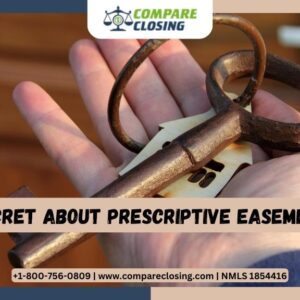Table of Contents
- What Are Netting Escrows & How Does It Work?: The Best Guide - January 2, 2024
- The Secret About Prescriptive Easement: Top Guide 1 Must Know - December 4, 2023
- About Home Equity Loans In Texas And How Can One Obtain It - November 27, 2023
About Cash to Close
As you approach the final step of the home buying process, cash to close is the one term you want to be familiar with.
Even if this term does not directly refer to actual cash, yet cash to close is important because it refers to the out-of-pocket costs you’ll need to pay prior to receiving the keys to your new home.
Today we will try to know more about what exactly cash to close is and what you can expect when figuring out the upfront costs associated with buying a home.
What Is Cash To Close?
Cash to close is also sometimes referred to as “funds to close,” which refers to the total amount you are required to pay on the day of your closing.
Expenses such as your down payment, closing cost fees, and prepaid items are all part of your cash to close.
Know the difference between Cash To Close vs Closing Costs
Although cash to close and closing costs are closely related, they are two different things.
The entire amount you need to pay at closing is referred to as cash to close, it also includes the down payment and any other costs associated with the mortgage.
Closing costs are made up of various fees charged by the lender to originate the loan and transfer ownership of the property, they are a part of the total cash to close amount.
Cash to Close
The cash to close amount may include:
- Down Payment: which is a percentage of the home’s purchase price that needs to be paid upfront to the lender.
- Total Closing Costs: This is the number of upfront costs, minus the down payment made by you, that is required to complete your real estate transaction.
- Prepaids: These include the interest accrued on the loan between the closing date and end of that month, the first year of homeowners insurance premiums, and other assessment costs. Some of these payments may be put into an escrow account.
- Credits: A deduction from your total cash to close which is the amount of any money already put down or fees already paid to your lender.
Closing Costs
The closing costs amount depends on the location of your home, the loan program selected by you, and your financial situation, along with other factors. Commonly the closing cost fee includes:
- Application or Credit Report Fee
- Appraisal Fee
- Home Inspection Fee
- Pest Inspection Fee
- Origination Charges
- Private Mortgage Insurance
- Property Taxes
- Title Insurance Fee
Knowing the Amount of Your Cash to Close
You will receive a five-page document called a Closing Disclosure at least three days before your closing date. And this document will highlight the total fees and expenses that need to be paid for your home loan.
The first page of your Closing Disclosure shows a summary of the loan terms, projected payments, and costs at the time of closing, including separate totals of both your closing costs and cash to close amounts.
To determine the final amount of cash to close all the fees, credits, and prepaid are added and subtracted accordingly. The general formula used is:
- The total amount of closing costs;
- Deducting any closing costs paid before closing and those cost that needs to be rolled into the loan amount;
- Adding down payment funds from the borrower;
- Subtracting the borrower’s original deposit;
- Also deducting any seller credits, adjustments, refunds, or other credits;
- Will give the total Cash to Close amount.
How Can You Pay Your Cash to Close
Since you will almost never pay the cash to close fee in cash the term cash to close is a little delusive.
Depending on the form of payment your settlement company accepts will decide the method of paying your cash to close. Common payment methods are:
- Wire Transfer: This is an electronic way to send money to your lender.
- Cashier’s Check: A check that is issued and backed by the bank is called a cashier’s check.
- Certified Check: A form of a check that certifies that the check is legitimate and will not bounce because there are enough funds in your account.
To verify which payment methods they accept for your cash to close you need to check with your lender and/or settlement company. To avoid any last-minute scrambling do this a few days ahead of your closing date.
Conclusion
When you are paying your cash to close you are moving one step closer to receiving the keys to your new home which is an exciting thing.
You can avoid any surprises by understanding that your cash to close is an out-of-pocket expense and knowing how much money you’ll need can help.
It’s also important to check with your lender and verify what type of payment methods they accept. As every loan is different you need to be proactive and communicate with your lender.
Amanda Byford
Amanda Byford has bought and sold many houses in the past fifteen years and is actively managing an income property portfolio consisting of multi-family properties. During the buying and selling of these properties, she has gone through several different mortgage loan transactions. This experience and knowledge have helped her develop an avenue to guide consumers to their best available option by comparing lenders through the Compare Closing business.





